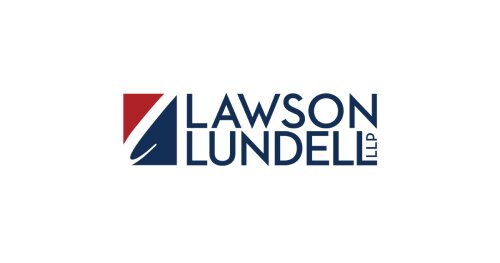Best Aviation Lawyers in Yellowknife
Share your needs with us, get contacted by law firms.
Free. Takes 2 min.
List of the best lawyers in Yellowknife, Canada
About Aviation Law in Yellowknife, Canada
Yellowknife, the capital city of the Northwest Territories, is a vital hub for aviation activities given its geographical location and the significant role it plays in connecting remote communities. Aviation law in Yellowknife involves various aspects of both municipal and federal regulations, as the region relies heavily on air transport for both passenger and cargo movement due to its isolated nature and rugged terrain. The ever-changing climate conditions and unique operational challenges further underscore the importance of robust legal frameworks governing aviation in the area.
Why You May Need a Lawyer
Individuals and organizations involved in aviation within Yellowknife might require legal advice for several reasons. These include but are not limited to aircraft purchases and sales, regulatory compliance, accident investigations, air carrier operations, environmental issues, airport development and usage, pilot licensing disputes, and labor and employment issues concerning airline staff. Legal professionals specializing in aviation can provide the necessary guidance and representation in these complex and often highly technical matters.
Local Laws Overview
Aviation in Yellowknife is predominantly regulated by federal laws, including those enforced by Transport Canada, which oversees airspace management, safety regulations, and licensure. However, local regulations also intersect with federal laws particularly in areas like environmental protection, noise restrictions, and land utilization surrounding the airport. Understanding both local and federal legislation is crucial for compliance and operational success in Yellowknife's aviation sector.
Frequently Asked Questions
What entities regulate aviation in Yellowknife?
Aviation in Yellowknife is primarily regulated by Transport Canada, which enforces safety, licensing, and operational standards. Additionally, the Yellowknife Airport Authority oversees airport-specific regulations.
Do pilots need special certification to fly in northern Canada?
Yes, pilots must obtain certification that meets both national and regional standards, particularly given the unique climate and terrain challenges present in Yellowknife.
How does weather impact aviation in Yellowknife?
Weather poses significant challenges due to extreme cold, ice, and limited visibility conditions. Legal professionals can assist with matters related to weather-related delays and safety compliance.
What are the noise regulations around Yellowknife Airport?
Noise control measures are in place to minimize disturbances, particularly in residential areas. Compliance with these regulations is crucial for both airlines and airport operators.
What recourse is available for aviation accidents in Yellowknife?
Accident investigations are typically conducted by the Transportation Safety Board of Canada. Affected parties may seek legal guidance to explore compensation or address liability concerns.
Can foreign aircraft operate in Yellowknife?
Yes, but they must adhere to Canadian aviation regulations and may require specific permits or authorizations, depending on their operations.
What environmental regulations affect aviation activities?
Environmental impact assessments and compliance with the Territorial Lands Act and other statutes ensure that aviation operations do not adversely affect Yellowknife's natural landscape.
How do national and local laws intersect in aviation governance?
While primary regulation is federal, local laws may impose additional requirements concerning land use, environmental protection, and noise, creating a dual compliance framework.
Are there specific legal considerations for commercial air services in Yellowknife?
Commercial operators must meet strict licensing requirements and operational standards, often requiring legal navigation of pricing, safety procedures, and international agreements.
How are labor disputes in the aviation sector handled?
Labor relations within the aviation industry are subject to both federal and local employment standards, with legal avenues available for dispute resolution and contract negotiation.
Additional Resources
For further information on aviation law, individuals can consult Transport Canada for regulatory updates and compliance guidelines. The Yellowknife Airport Authority can provide insights into airport-specific regulations. Legal professionals and law associations in the Northwest Territories can also be invaluable resources.
Next Steps
If you're in need of legal assistance in aviation matters, start by consulting a lawyer specializing in aviation law. Be prepared with relevant documentation and a clear understanding of your legal needs. Reach out to local law firms known for their expertise in aviation-related cases or contact the Law Society of the Northwest Territories for lawyer referrals. Taking these steps will ensure you receive the guidance and support necessary to address your legal challenges effectively.
Lawzana helps you find the best lawyers and law firms in Yellowknife through a curated and pre-screened list of qualified legal professionals. Our platform offers rankings and detailed profiles of attorneys and law firms, allowing you to compare based on practice areas, including Aviation, experience, and client feedback.
Each profile includes a description of the firm's areas of practice, client reviews, team members and partners, year of establishment, spoken languages, office locations, contact information, social media presence, and any published articles or resources. Most firms on our platform speak English and are experienced in both local and international legal matters.
Get a quote from top-rated law firms in Yellowknife, Canada — quickly, securely, and without unnecessary hassle.
Disclaimer:
The information provided on this page is for general informational purposes only and does not constitute legal advice. While we strive to ensure the accuracy and relevance of the content, legal information may change over time, and interpretations of the law can vary. You should always consult with a qualified legal professional for advice specific to your situation.
We disclaim all liability for actions taken or not taken based on the content of this page. If you believe any information is incorrect or outdated, please contact us, and we will review and update it where appropriate.








